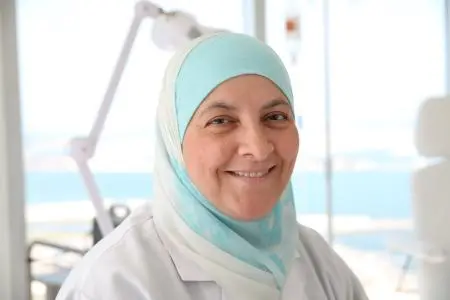PHOTO
Decision Most Beneficial for School Children
Over 1,000 school students from GEMS Wellington International School were educated on the negative impact of sugar consumption and the epidemic of obesity
Dubai, UAE - Emirates Hospital’s, a subsidiary of Emirates Healthcare Company, leading paediatrician, Dr Abeer Khayat, renounces the consumption of sugary drinks among children and youth. Sugary soft drinks and energy drinks are taxed in the UAE (effective as of October 1st 2017). The foremost paediatricians from Emirates Hospital have backed this decision as it would benefit school students the most.
Over 1,000 children of the GEMS Wellington International School, Dubai were educated on the benefits of healthy eating habits by Dr Abeer Khayat, paediatric consultant at Emirates Hospital Dubai, during the morning assembly. Through interactive discussion with children, Dr Abeer emphasised the importance of making good choices on what children pick for their drinks and snacks. The students keenly listened to Dr Abeer as she quoted the disadvantages of consuming sugary drinks and its role in causing tooth decay, excessive weight gain, and reducing intake of more nutritious foods such as milk and dairy products.
This is one of several activities that the Emirates Hospital supported in an effort to increase awareness of childhood obesity and educate children and families on healthy lifestyles. During this event, Emirates Hospital distributed 1,200 goodie bags to the students, containing brochures, caps, and highlighters among other things.
Dr Abeer spoke in support of and welcomed the newly reinstated ‘sin tax’ on sugary drinks; “This is a long-awaited step toward ending childhood obesity, and in fact, it is one of the strategies that has been recommended by World Health Organization Commission on Ending Childhood obesity”.
Worldwide, there has been a startling increase in rates of obesity in both adults and children. According to recent reports, the obesity rate in the Gulf region is double the world average. In addition, children who are overweight or obese are likely to remain the same as adults; passing their genetic and cultural characteristics to their offspring. This clearly indicates the importance of working together at all levels on ending childhood obesity.
Dr Abeer reinstated the vital role parents, schools and teachers play in preventing childhood obesity. “Children, even with healthy weight are still at risk for becoming overweight or obese in the future. Parents need to ensure that the child’s overall lifestyle is looked after and keep a conscious check on obesity risk factors, encourage children to eat more fruits and vegetables, limit recreational electronic screen time to less than two hours per day, make sure kids have plenty of physical activities, and reduce sugar intake to zero,” she stated.
-Ends-
© Press Release 2017




















